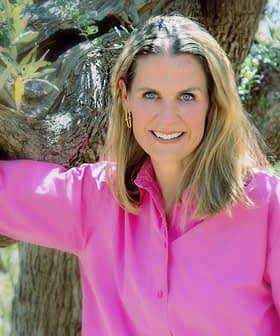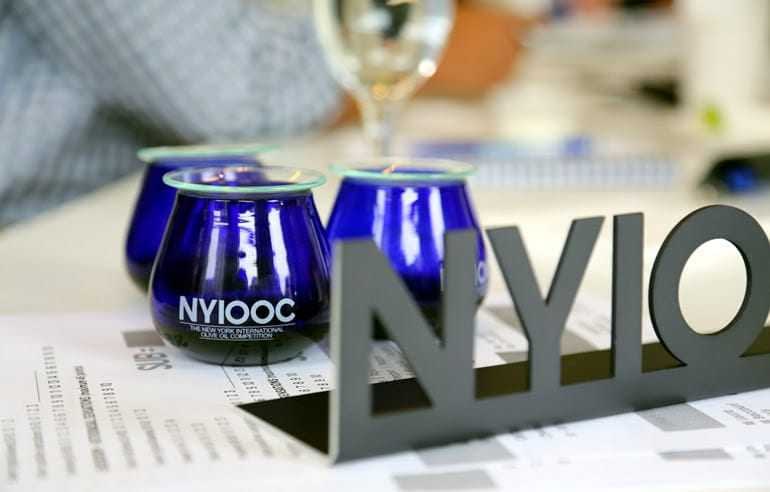
The seminars of the second annual New York International Olive Oil Competition began today, with speakers addressing a full house at The International Culinary Center.
The NYIOOC president and event organizer, Curtis Cord, opened the proceedings welcoming “guests from as far as Australia, South Africa, Argentina, Sweden, Slovenia, and Japan” to the premier event, “the largest and most important olive oil competition in the world.” Greeting the wide variety of participants, from estate producers to global oil importers and distributors, Cord stated that “it is one thing to make a great olive oil — and it is another thing to sell it.” There is little relation between the quality of an olive oil and its value in today’s marketplace, said Cord. “Thursday’s press conference here will unveil the best olive oils, but today we need to explore innovative ways to get those olive oils into kitchens around the world.” Thus began a day of presenters arranged, Cord said, to “complete the circle and empower producers and providers of excellence to succeed and give all of us better choices where we live — to improve the foods we eat and make our diets more healthful.”
Dorothy Cann Hamilton, the founder of The International Culinary Center, welcomed conference participants and praised Cord and last year’s event also held here. “What happened here last year was magical, transcendental,” Hamilton declared. Stressing the importance of olive oil as an “elixir” of great historical magnitude, Hamilton declared olive oil a healthy “food of the future; true liquid gold.”
Hamilton’s spoke about the importance of global cooperation necessary to education the public on the values and benefits of olive oil. This was followed by a talk by the executive director of the International Olive Council, Jean-Louis Barjol.
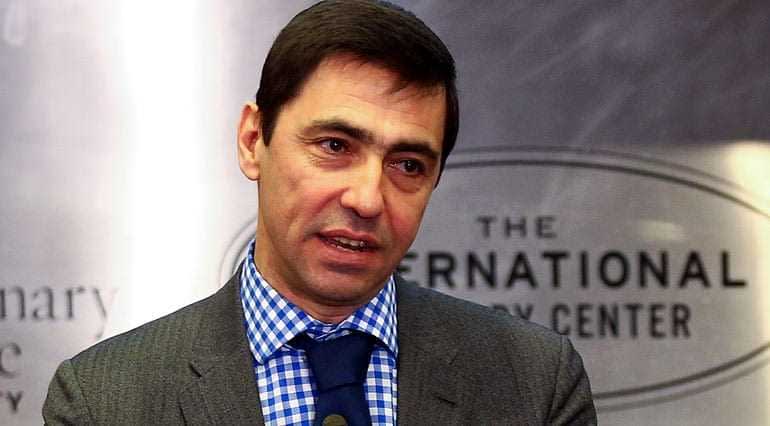
Barjol detailed the history of the International Olive Council (IOC), beginning with its inception under the auspices of the United Nations, via treaty in Geneva in 1959. Since then, the treaty has been renegotiated five times, and this will occur once more at the end of this year. Though the IOC, with 17 member states, represents 97 percent of global olive oil production, this represents only 77 percent of world consumption. Barjol stressed further weakness in the efficacy of IOC standards by drawing attention to the fact that the US is not a member.
The massive share of the US import market for oil, along with the rapidly growing markets of Brazil and China, mean that IOC members only account for 15 percent of world imports. While member states have an obligation to enforce IOC standards, non-producing nations have no duty to ensure IOC criteria for labeling or quality assurance. Barjol highlighted the challenges in a market with changing global demand, specifically from non-producing countries. “In the past 23 years, olive oil has become a completely globalized product,” he said, “but the US is still the engine of the system, the crucial market.” Barjol detailed the Council’s efforts to influence consumers, opinion leaders, and legislators, and the goal of adding global value to the foodstuff through market research and promotional campaigns.
The next segment was led by Leandro Ravetti, the technical director of Boundary Bend Olives, Australia’s first completely vertically-integrated company. Ravetti is no stranger to the NYIOOC. Having overseen the production of award-winning oils for the company’s flagship brand, Cobram Estate, he took home four gold medals and two best-in-class trophies at last year’s competition.
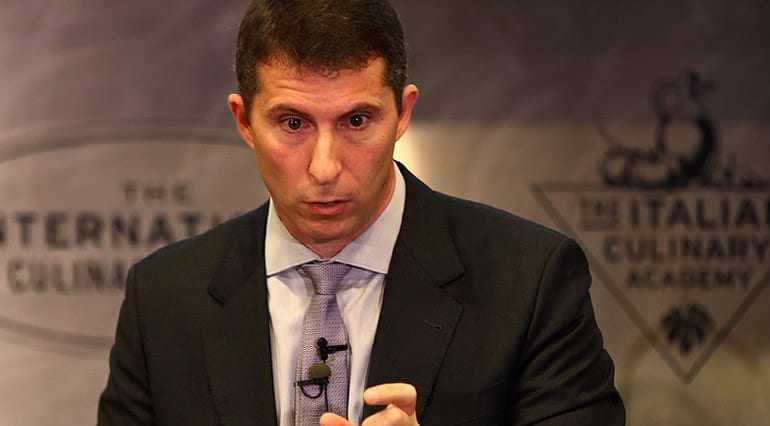
Ravetti explained his company’s motivation to produce “everyday oils, at competitive prices, that rival boutique oils on a quality level.” The pioneer of printing harvest date labels in the Australian market, Ravetti has quality control as his mission, “not only until packaging, but all the way until the bottle is opened.” His seminar focused on the connection between product packaging and oil quality, and he imparted advanced scientific knowledge on the plethora of packaging options available to producers.
Ravetti’s talk was followed by a presentation by author, editor, and branding expert Debbie Millman, president of the design division at Sterling Brands, and president emeritus of AIGA, the professional association for design. As the judge of this year’s package design competition, Millman gave attendees a panoramic history of global branding and brand strategy.
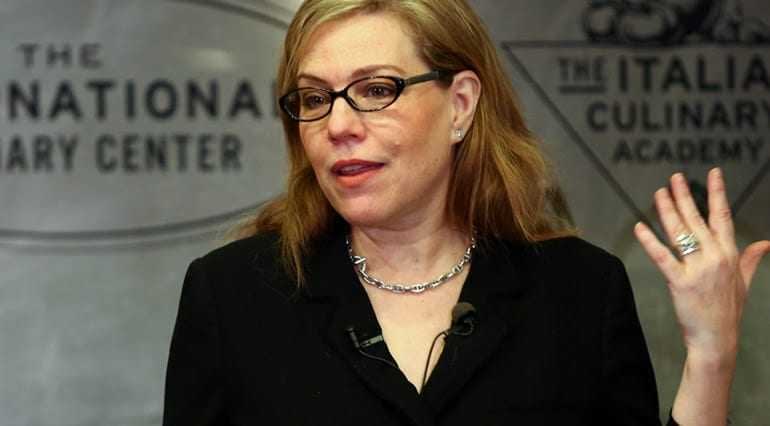
As the taste panelists from eight countries continue to sample the nearly 700 olive oils entered in this year’s competition, conference attendees will hear from more experts, educators, and merchants until the winners are announced Thursday evening.







